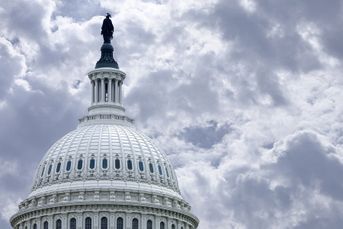Our legal challenge to the DOL: Making our voices heard in court
The Labor Department's determination to move ahead with the fiduciary rule in spite of others' grave misgivings has left us with no other choice than to bring this issue before a court of law.
For decades, Main Street American investors have been voting with their dollars in favor of a simple but critically important and effective advisory model based upon commissions that gives them access to objective, affordable investment guidance to help them plan for a dignified retirement. Investors have obtained that advice through flexible service options that allow them to customize the level of assistance and service they receive to their own budgets and unique goals and needs.
One of the Financial Services Institute’s principal missions is to protect and expand this access to quality advice for all investors.
Now, however, the Department of Labor has issued a rule that is fundamentally incompatible with this mission, in the form of its expanded definition of fiduciary under ERISA. The rule would restrict access to crucial financial services by limiting the ways in which advisers can work with retirement savers, including through use of the commission-based model, and would introduce untold legal liability for financial advisers (including RIAs) who are simply trying to do the right thing for their clients. The redefinition of fiduciary also sweeps in activities that never previously have been thought to be fiduciary, such as making a sales presentation in which the financial professional identifies investment options he could provide.
The DOL’s rule disregards not only the express needs of millions of American investors, but the explicit will of Congress, which delegated the task of creating a unified fiduciary standard for personalized investment advice to the Securities and Exchange Commission as part of Dodd-Frank — and which has voted to halt the DOL’s new rule.
The DOL’s measure — and the Department’s determination to move ahead with it in spite of grave misgivings on the part of legislators and financial experts alike — has left us with no other choice than to bring this issue before a court of law.
On June 1, in conjunction with a coalition of other concerned trade associations and financial industry and Main Street groups, we announced the launch of litigation challenging the DOL’s misguided rule, with the ultimate aim of promoting more reasoned, uniform regulation that will benefit all Americans saving for retirement without harming the financial professionals who help them realize their dreams.
WRONG PATH
As I have pointed out repeatedly in the past, FSI is strongly in favor of a uniform fiduciary standard of conduct for financial advisers and RIAs that would govern all personalized retail investment advice. We have been vocal in calling for the SEC to develop such a standard since 2009 — before the adoption of Dodd-Frank.
Being pro-fiduciary is nothing new to FSI or our members.
The SEC’s vast experience in regulating financial services firms and financial advisers, in addition to its vested examination and enforcement authority, make it the only viable choice to establish and oversee a uniform standard across the entire industry — not a costly and unworkable standard that applies to retirement accounts and a separate one for everything else.
The DOL’s intervention in this area, unfortunately, has resulted in an overreaching rule that makes retirement saving harder for the same American families and individuals it claims to protect. The department’s lack of enforcement authority over IRAs also means that it must outsource enforcement to the class action bar.
OVERSTEPS AUTHORITY
The DOL’s lack of authority (or the appropriate infrastructure) to enforce conduct standards related to IRAs led the department to incorporate a novel enforcement mechanism into its new rule. To continue offering commission-based options to investors, the rule requires financial advisers to enter into binding agreements with clients — referred to as best interest contracts — that would create a private right of action enabling investors to sue advisers and even initiate class action suits for breach of standards of conduct fashioned by the DOL.
This mechanism creates potentially incalculable legal risk for financial advisers and firms, who will face the threat of class action lawyers challenging their every recommendation, for every client they work with under a best interest contract. Advisers and the firms that support them will consequently be forced to alter their advisory practices to offer fewer investment options and services — and to stop servicing the smaller investors who need assistance the most.
This unprecedented level of legal liability for advisers will ultimately harm ordinary Americans by limiting their opportunities to receive the best possible investment services and raising the cost of discussing their retirement goals with an experienced, qualified financial adviser.
There is another problem here, however. In creating this provision, we believe that the DOL has significantly exceeded the bounds of its legal authority. The department is not permitted to create a private right of action without authorization from Congress, and the legislature never authorized the private right of action the DOL has created. We intend to make this case as forcefully as possible in court in the months ahead.
FIGHTING FOR INVESTORS
While the DOL responded to some of our concerns in the final version of the rule, we are convinced that it remains extremely burdensome and costly for firms, financial advisers and investors alike, and that it will leave many investors without access to the advice, products and services they desperately need in order to secure a dignified retirement. In addition, the failure of the DOL to provide firms with a clear path to compliance means that firms and financial advisers who are trying to do the right thing for their clients will live in constant fear of lawsuits, and even class action suits, alleging that they failed to correctly interpret and comply with the complex and ambiguous new regulatory obligations.
Now that the department’s final rule is on the table, and the stakes have become clear, it is more apparent than ever that this litigation is the appropriate next action.
While we wait for the court to rule, we will continue to advocate in favor of a uniform fiduciary standard that works for all investors and industry professionals.
Dale Brown is president and chief executive of the Financial Services Institute Inc.
Learn more about reprints and licensing for this article.







